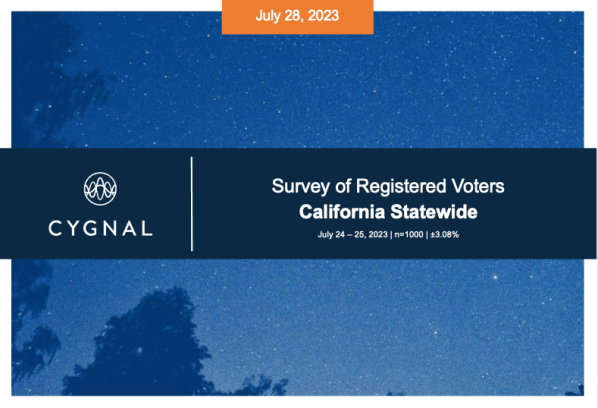A strong majority of registered voters support the California death penalty law: 53.2%

Jim Lacy on John and Ken
KMJ Podcast: Guest Host Blake Taylor Is Joined By Attorney And KMJ Host Mark Kapetan. Jim Lacy Joins The Show
Segment begins at approximately 22:00
Support for Governor Newsom’s Death Penalty Moratorium Has Plummeted As voters Perceive Rising Crime In California – New Statewide Poll
Davis Killings Renew Focus on Death Penalty
64% of California Likely Voters Oppose Newsom Pardon of Sirhan Sirhan, less than 20% support Pardon; Support for Death Penalty Law Growing:
-California Poll on Sirhan Sirhan parole, death penalty law support, September 1, McLaughlin and Associates, complete poll:
-California Poll on Sirhan Sirhan parole, death penalty law support, September 1, McLaughlin and Associates, methodology:
Most Californians Support State Death Penalty Law:
-California Poll Executive Summary on death penalty law support, short questions, June 8, McLaughlin and Associates,
-California Poll Executive Summary on death penalty law support, June 23, McLaughlin and Associates, complete poll:


One of history’s most infamous assassins could soon be released from a California prison, just as debates about crime and punishment take on a larger role in the state’s gubernatorial recall election.
Tom Jackman reports for the Washington Post:
Sirhan B. Sirhan, convicted of the 1968 assassination of Sen. Robert F. Kennedy, will face a California parole board for the 16th time Friday in a prison outside San Diego. But unlike the first 15 times, no prosecutor will stand to oppose the release of Sirhan, who is now 77.
Sirhan was arrested at the scene of Kennedy’s shooting in Los Angeles on June 5, 1968, convicted of first-degree murder and sentenced to death for the assassination of a U.S. senator who appeared headed for the Democratic presidential nomination. The assassination, along with that of the Rev. Martin Luther King Jr. two months earlier, created a turning point in American history with the sudden elimination of the charismatic leaders of the American civil rights movement and the Democratic Party.
When California abolished the death penalty, Sirhan’s sentence was reduced to life with the possibility of parole. And now Sirhan, who has been incarcerated for 53 years, may benefit from a new push among progressive prosecutors to seek the release, or not oppose the release, of convicts who have served decades behind bars, no longer pose a threat to society and will be costly to treat medically in their later years.
But did California really abolish the death penalty? Gov. Gavin Newsom, the Democrat now facing a recall election, claimed to have the authority when he issued an order in 2019. Many of the state’s voters still don’t think the order was lawful.
In the Los Angeles Times in May Phil Willon noted that “over the last decade, California voters have twice rejected ballot measures to abolish the death penalty, first in 2012 and again in 2016. In fact, voters in 2016 approved a ballot measure, Proposition 66, to fast-track executions in California.” Added Mr. Willon:
Newsom argued that the death penalty discriminates against defendants who are poor, mentally ill, Black or Latino. He also has argued that death row inmates in California and other states have been exonerated, proving that innocent people faced the threat of wrongful execution.
James Lacy, publisher of the California Political Review, filed suit in January of this year in Sacramento County Superior Court and has asked the court to declare the Newsom order void. Mr. Lacy makes the case in a recent email:
California’s death penalty, in addition to being clearly written in the Constitution and statutes, has what many California laws do not: popular support. Yet just 28 months after pro-death penalty initiatives passed, one of newly-elected Governor Gavin Newsom’s first acts was to issue an executive order effectively ending the death penalty. His imperious stroke-of-the-pen repeal of the law and of the voters’ will included reprieves for over 700 murderers sentenced to death for their especially gruesome crimes.
Among those on death row benefitting from Newsom’s unilateral edict are literally hundreds like Wayne Adam Ford, who after killing four women, dumped their body parts across the state — all the while carrying one victim’s severed breast in his pocket; and Cary Stayner, who killed three women tourists at Yosemite National Park in cold blood, slitting their throats and burning them beyond recognition, before murdering a nature guide and sawing off her head.
Mr. Lacy says that despite Mr. Newsom’s assertion of power to declare a moratorium on the death penalty, “to paraphrase Mark Twain, the death of the death penalty in California has been exaggerated.” Adds Mr. Lacy:
The governor will face the verdict of the voters in his recall election on September 14. But two weeks before that, a Sacramento County Superior Court judge will render his verdict on whether Newsom unconstitutionally exceeded his authority by disregarding the law in order to, among other things, dismantle the death chamber at San Quentin and repeal the state’s lethal injection protocols. The issue in the legal case is straightforward: can the Governor pick and choose which laws he wants to follow?
The question before the voters is equally straightforward. Is the governor’s tolerance of violent crime too much for them?
